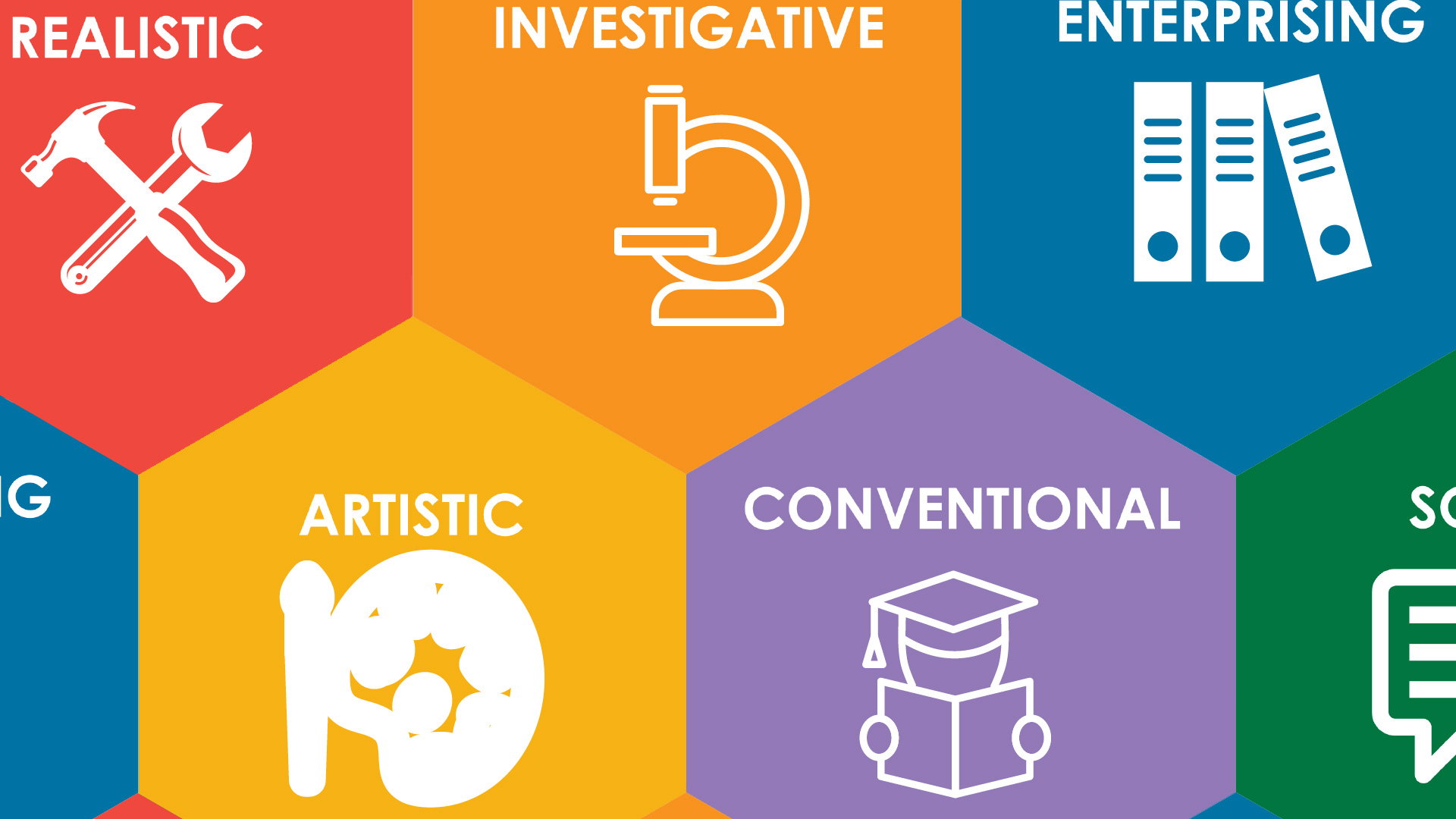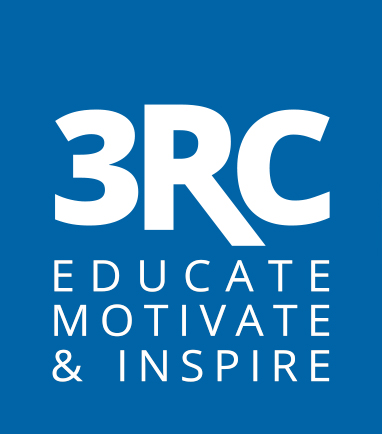What is the Holland Code

If you enjoy what you do, and you are naturally talented to do it you are bound to be happy and successful. Ultimately that is what we all want. I can promise you that employers also want happy successful employees as happy people work better, miss fewer days of work and make them more money. Let’s hear it for capitalism!
I can imagine that there a more than a few of you who are still very unsure. If not about what you want to do, then what you are good at. Now I cannot tell you what you are good at, but I might have a tool that can help. It will steer you towards your strengths and in turn, a possible career that will play to those strengths. It is called the Holland code.
The Holland Code was developed by an American psychologist called John Holland. He divided his study groups into Realistic (Doers), Investigative (Thinkers), Artistic (Creators), Social (Helpers), Enterprising (Persuaders), and Conventional (Organizers). The basic premise was that our choice of career was just an outward expression of personality traits.
These traits are abbreviated as RIASEC. R- realistic, I – investigative, A – artistic, S – Social, E – enterprising and C- Conventional.
All of us fall in one of these as a dominant part of our personality with two others as secondary and tertiary traits.
Want me to give you the traits of each sector? Have a look at this graph:
Let us delve a bit deeper into each Personality Type.

The Realistic Personality Type
A realistic personality type enjoys using their hands and eyes to explore the world and accomplish things. These individuals like doing outdoor, mechanical and physical activities and occupations. They prefer working with things, such as objects, tools, machines, plants, and animals rather than with ideas, data, and people.
They are very physical and confident when using their body to relate to the physical world. Mechanical and athletic abilities are a strong suit and they are usually strong and well-coordinated. A realistic personality type likes solving concrete instead of abstract problems and solves problems by doing something physical.
Because of their ability with physical objects, they are often good at emergencies. A realistic personality type can deal well with the physical world, which often means they are very independent, practical-minded, strong, sometimes aggressive and conservative in their thinking. They may not have strong communication skills and tend to think in absolutes.
Possible careers include:
- Landscape Architect
- News Photographer
- Commercial Airline Pilot
- Machinist
- Architectural Drafters
- Audio and Video Equipment Technicians
- Civil Engineers
- Environmental Engineering Technicians
- Radiologic Technologists
- Surveyors
The Investigative Personality Type
An investigative personality type tends to be analytical, intellectual and scholarly. They enjoy research, mathematical or scientific activities. These individuals live in their mind and prefer to deal with the real world from a distance. They enjoy reading, books, gaining knowledge and gathering data instead of working hands-on. They are unconventional and independent thinkers, who are curious and very insightful.
This personality type tends to be very intellectual and introverted and lack the persuasive and people skills needed for leadership roles. They use their mind /information to achieve, rather than their association with people and things. These individuals often avoid activities that seem mundane, commercial or enterprising.
Using logic and solving highly complex, abstract problems are what they enjoy most. An investigative personality type tends to focus on ideas when they are involved with people. Wherever they are, they collect information and analyze situations before making decisions. If they enjoy the outdoors, it’s because they are curious, not because they enjoy rugged, heavy, physical work.
Possible careers include:
- Computer Programmer
- Archaeologist
- Statistician
- Biochemists and Biophysicists
- Clinical Psychologists
- Electronics Engineering
- Physicians and Surgeons
- System Software Developers
- Political Scientist
- Physicist or Astronomer
The Artistic Personality Type
An artistic personality type uses their hands and mind to create new things. They appreciate beauty, unstructured activities, and variety. They enjoy interesting and unusual people, sights, textures, and sounds. These individuals prefer to work in unstructured situations and use their creativity and imagination. These are the dreamers who create and invent.
This personality type is especially sensitive to color, form, sound, and feelings. They are spirited and enthusiastic and can often stay focused on a creative project and forget everything around them. An artistic personality type solves problems by creating something new. Their ideas may not always please others, but they are not discouraged for long.
They are creative, impulsive, sensitive and visionary. Although they are creative, it may not necessarily be expressed with paint and canvas. Creativity can also be expressed in data and systems. Artistic personality types prefer to work alone and independently rather than in teams or with others.
Possible careers:
- Interior Designer
- Craft or Fine Artist
- Landscape Architect
- Drafter
- Interpreter or Translator
- Multimedia Artist or Animator
- Graphic Designer
- Art Director
- Video Editor
- Social Media and Marketing Specialist
The Enterprising Types
These individuals like to work with people, influence, persuade, lead or manage for organizational goals or economic gain. An enterprising personality type is often a leader who is talented at organizing, persuading and managing. They enjoy money, power, status and being in charge.
These personalities solve problems by taking risks. Instead of doing research, this person relies on intuition about what will work. They may strike an observer as restless and irresponsible since they often drop these projects after the job is underway. They are often the driving force and the energizing influence projects need to get off the ground.
Possible careers might be:
- Advertising Sales Representative
- Banker
- Managers
- Judge or Hearing Officer
- Advertising and Promotions Manager
- Financial Manager
- Air Traffic Controller
- Lawyer
- Public Relations Manager
- Human Resources Manager
The Social personality type
Individuals who are a social personality type are dedicated leaders, humanistic, responsible and supportive. They use feelings, words and ideas to work with people rather than physical activity to do things. They enjoy closeness, sharing, groups, unstructured activity and being in charge. They are true people’s people.
People and their concerns are the focus of a social personality type. These individuals are sensitive to people’s moods and feelings and make friends easily. They sometimes focus on people concerns to the exclusion of all else. A social personality type may appear impractical, especially to the realistic types.
These individuals are friendly and skilled with words and solve problems by feeling. A social personality type enjoys informing, helping, training, developing and curing people in their work. Their empathy and sensitivity to emotional cues help them solve people problems, sometimes before others are aware of them. These individuals can pull people together and generate positive energy for a good cause.
Careers for the Social personality type include:
- Nurse Anesthetist, Nurse Midwife, or Nurse Practitioner
- Physical Therapist
- Occupational Therapist
- Speech-Language Pathologist
- Professor or College Instructor
- Arbitrator, Mediator, or Conciliator
- Respiratory Therapist
- Chiropractor
- Orthotist or Prosthetist
- Emergency Management Director
The Conventional personality
A conventional personality type likes to work with data and numbers, are detail orientated and follow through on the instructions of others. They are quiet, careful, responsible, well organized and task-oriented. These individuals use their mind, eyes, and hands to carry out tasks.
These individuals have a strong need to feel secure and certain, follow a routine, get things finished and take care of every detail. A conventional personality type is neat, orderly and practical, and enjoys working with data (facts, figures, and numbers) in structured settings.
They are task-oriented and prefer to carry out tasks initiated by others, rather than being in a position of authority. They are also very set on following rules and regulations. Because of the attention to detail that a conventional personality type has, these individuals keep the world’s records and transmit their messages
Possible careers for the conventional personality:
- Computer Network Architect
- Actuary
- Information Security Analyst
- Database Administrator
- Statistician
- Financial Analyst
- Budget Analyst
- Insurance Underwriter
- Accountant or Auditor
- Web Developer

